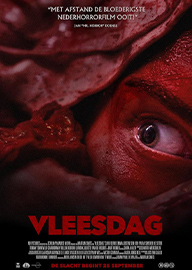Siccin 7
- 4
- Horror
- 2024
- 1h 34m
- PG-13
a Turkish supernatural horror film directed by Alper Mestçi. When a doctor bargains with a child-begging mafia and moves his family to his uncle’s mansion, warping secrets, Alzheimer’s, and dark rituals turn their refuge into a nightmare. A chilling tale of debt, legacy and the house that never forgives.












Comments
0Reviews
0Summery
1Please sign in to comment.
Please sign in to review.
In a sprawling Turkish manor steeped in marble and silent grief, Dr. Kemal steps into a darkness he thought he'd left behind. Forced to quit his profession after a cruel bargain with a child-begging mafia, Kemal flees with his wife, daughter Rüya — fragile from illness — and his ailing mother Lale, haunted by Alzheimer’s. The family relocates to the uncle’s mansion in hopes of escape and renewal, yet what greets them is a labyrinth of shadows far older than their secrets. The house walls remember. The rooms record. In the corridors, unseen eyes watch. At night, the mansion breathes with moans and half-spoken prayers. The dark magic that Kemal thought he abandoned wraps around his mother’s faltering mind and Rüya’s silent illness, creating a convergence of despair and dread.
A mysterious woman, Meral, joins them under the guise of helper-guest, bringing warmth in daylight and curse at dusk. She carries hidden purposes: a ritual set beneath the black moon of 2018, a promise of power bound in blood and belief. Lale’s confusion deepens; her memories break into another realm where voices echo, shadows move, and time fractures. Rüya lies unable to speak, but dreams awake — visions of otherworldly shapes, distant cries of hidden children, something more ancient than the mafia’s violence. Kemal watches his family disintegrate into myth: what starts as illness becomes possession, what begins as guilt becomes inevitability. The doctor’s hands, once steady for healing, tremble now with fear he cannot diagnose.
Within those walls the film transforms into an elegy of haunted lineage. The mansion’s grandeur hides the weight of generations; the bargain signed by Kemal is not only legal but spiritual, and the debt is paid not in money but in memory and pain. The ritual’s roots dig deep: the house seems to expand, rooms shifting, windows revealing places that weren’t there, mirrors showing things not seen. Each night the terror mounts—not in jump-scares alone but in dread of what is always just out of frame. When one by one the family confronts the terror—Kemal in a chapel stained with unspoken names; Lale in a hallway where time loops; Rüya in a voiceless scream beneath the black moon—it becomes clear: survival is not victory here, and the house does not forgive.
By the end, the bargain is fulfilled — not with enemies, but with the self. Meral’s ritual completes, the mafia’s threat dissolves, but the curse remains. Kemal emerges from the mansion changed, his daughter still silent, his mother still wandering in half-worlds. The mansion stands, silent yet shifting, waiting. Siccin 7 closes less with resolution and more with tremor—like a breath held too long. The screen goes black but the corridor of the house continues in memory. The family’s story remains open, their sins still echoing.